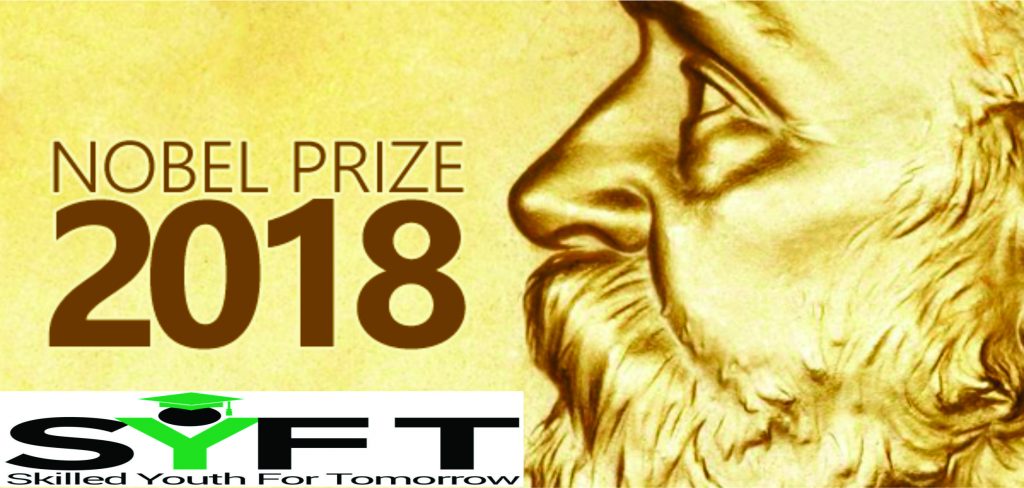The Nobel Prize is a set of six annual international awards bestowed in several categories by Swedish and Norwegian institutions in recognition of academic, cultural, or scientific advances. The will of the Swedish scientist Alfred Nobel established the prizes in 1895. The Nobel Prize is widely regarded as the most prestigious award available in the fields of literature, medicine, physics, chemistry, economics and peace. The Royal Swedish Academy of Sciences awards the Nobel Prize in Physics, the Nobel Prize in Chemistry, and the Sveriges Riksbank Prize in Economic Sciences in Memory of Alfred Nobel; the Nobel Assembly at the Karolinska Institute awards the Nobel Prize in Physiology or Medicine; the Swedish Academy grants the Nobel Prize in Literature; and the Nobel Peace Prize is awarded by the Norwegian Nobel Committee.
Between 1901 and 2017, the Nobel Prizes including the Economic Prizes were awarded 585 times to 923 people and organizations. With some receiving the Nobel Prize more than once, this makes a total of 24 organizations, and 892 individuals. The prize ceremonies take place annually in Stockholm, Sweden (with the exception of the peace prize, which is held in Oslo, Norway). Each recipient, or laureate, receives a gold medal, a diploma, and a sum of money that has been decided by the Nobel Foundation. Each prize is worth 9,000,000 SEK, or about US$1,110,000, €944,000, £836,000 or ₹72,693,900. Medals made before 1980 were struck in 23 carat gold, and later in 18 carat green gold plated with a 24 carat gold coating.
The prize is not awarded posthumously; however, if a person is awarded a prize and dies before receiving it, the prize may still be presented. Though the average number of laureates per prize increased substantially during the 20th century, a prize may not be shared among more than three people, although the Nobel Peace Prize can be awarded to organizations of more than three people.
The prize money for 2018 is 9 million Swedish Kroner i.e $1.01 million or 870000 EURO.
The winners for 2018 are:
| Name | Category | Contribution | Photo |
| Denis Mukwege | Peace |
For her efforts to end the use of sexual violence as a weapon of war & armed conflict. Mukwege, a gynecologist and surgeon, has long worked to treat thousands of women and girls affected by rape and sexual violence in the Democratic Republic of Congo. |
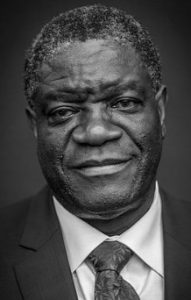 |
| Nadia Murad | Peace |
For her efforts to end the use of sexual violence as a weapon of war and armed conflict. Murad is a Yazidi woman from the northern Iraqi town of Sinjar, who was held as a sex slave by ISIS. In 2016, at age 23, she was made a UN goodwill ambassador for the dignity of survivors of human trafficking. |
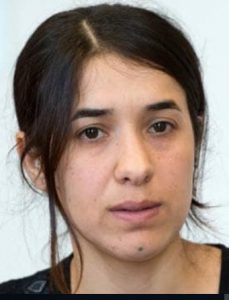 |
|
Gérard Mourou
|
Physics | For ground-breaking inventions in the field of laser physics. Gerard Mourou is a French scientist and pioneer in the field of electrical engineering and lasers and for their method of generating high-intensity, ultra-short optical pulses | 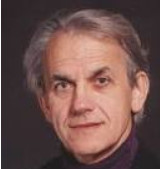 |
|
Arthur Ashkin
|
Physics | For ground breaking inventions in the field of laser physics. Arthur Ashkin famous for the optical tweezers and their application to biological systems | 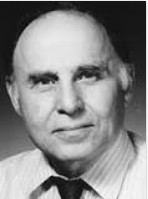 |
|
Donna Strickland
|
Physics | For ground breaking inventions in the field of laser physics and method of generating high-intensity, ultra-short optical pulses | 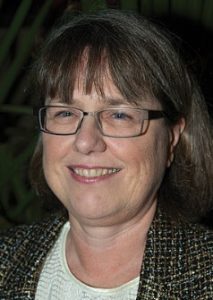 |
| James P. Allison | Medicine | For work in immunotherapy. Cancer purge break through. | 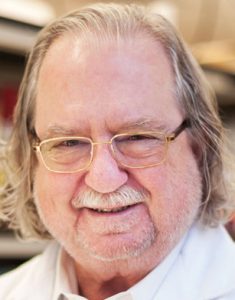 |
|
Tasuku Honjo
|
Medicine | For discovery of protein on immune cells and it operates as a brake but with a different mechanism of action. Hence for eradication of cancer. | 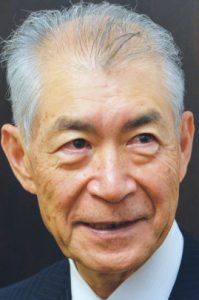 |
|
George Smith
|
Chemistry | For harnessing the power of evolution” to produce enzymes and antibodies that have led to a new best-selling drug and biofuels | 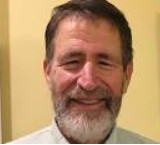 |
|
Frances Arnold
|
Chemistry | For research using directed evolution to produce enzymes & antibodies for new chemicals and pharmaceuticals | 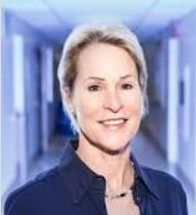 |
|
Greg Winter
|
Chemistry | In using phage display for the directed evolution of antibodies, with the aim of producing new pharmaceuticals. | 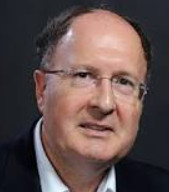 |


